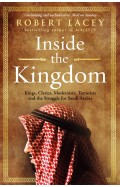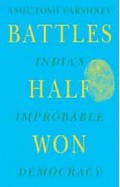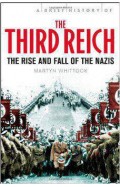- Home
- History
- Political
- Cynical Theories: How Activist Scholarship Made Everything about Race, Gender, and Identity - And Why this Harms Everybody
Cynical Theories: How Activist Scholarship Made Everything about Race, Gender, and Identity - And Why this Harms Everybody
By: Helen Pluckrose
-
Rs 2,695.50
- Rs 2,995.00
- 10%
You save Rs 299.50.
Due to constant currency fluctuation, prices are subject to change with or without notice.
BOOK OF THE YEAR in The Times, the Sunday Times and the Financial Times
Have you heard that language is violence and that science is sexist? Or been told that being obese is healthy, that there is no such thing as biological sex, or that only white people can be racist? Are you confused by these ideas, and do you wonder how they have managed so quickly to challenge the very logic of Western society?
Helen Pluckrose and James Lindsay document the evolution of the dogma behind these ideas, from its origins in French postmodernism to its refinement within activist academic fields. Today this dogma is recognisable as much by its effects, such as cancel culture and social-media pile-ons, as by its assertions, which are all too often taken as read: knowledge is a social construct; science and reason are tools of oppression; all human interactions are sites of oppressive power play; and language is dangerous. As they warn, the unchecked proliferation of these beliefs present a threat to liberal democracy.
While acknowledging the need to challenge the complacency of those who think a just society has been fully achieved, Pluckrose and Lindsay break down how often-radical activist scholarship does far more harm than good, not least to those marginalised communities it claims to champion.
BOOK OF THE YEAR in The Times, the Sunday Times and the Financial Times
Have you heard that language is violence and that science is sexist? Or been told that being obese is healthy, that there is no such thing as biological sex, or that only white people can be racist? Are you confused by these ideas, and do you wonder how they have managed so quickly to challenge the very logic of Western society?
Helen Pluckrose and James Lindsay document the evolution of the dogma behind these ideas, from its origins in French postmodernism to its refinement within activist academic fields. Today this dogma is recognisable as much by its effects, such as cancel culture and social-media pile-ons, as by its assertions, which are all too often taken as read: knowledge is a social construct; science and reason are tools of oppression; all human interactions are sites of oppressive power play; and language is dangerous. As they warn, the unchecked proliferation of these beliefs present a threat to liberal democracy.
While acknowledging the need to challenge the complacency of those who think a just society has been fully achieved, Pluckrose and Lindsay break down how often-radical activist scholarship does far more harm than good, not least to those marginalised communities it claims to champion.
Cynical Theories: How Activist Scholarship Made Everything about Race, Gender, and Identity - And Why this Harms Everybody
By: Helen Pluckrose
Rs 2,695.50 Rs 2,995.00 Ex Tax :Rs 2,695.50
Zubin Mehta: A Musical Journey (An Authorized Biography)
By: VOID - Bakhtiar K. Dadabhoy
Rs 472.50 Rs 1,050.00 Ex Tax :Rs 472.50
Talking to Strangers : What We Should Know about the People We Don't Know
By: Malcolm Gladwell
Rs 2,245.50 Rs 2,495.00 Ex Tax :Rs 2,245.50
The Origins of Political Order From Prehuman Times to the French RevolutioN
By: Francis Fukuyama
Rs 3,505.50 Rs 3,895.00 Ex Tax :Rs 3,505.50
Battles Half Won : Indias Improbable Democracy
By: Ashutosh Varshney
Rs 2,726.75 Rs 4,195.00 Ex Tax :Rs 2,726.75
Curzon's India: Networks of Colonial Governance, 1899-1905
By: Dhara Anjaria
Rs 895.50 Rs 995.00 Ex Tax :Rs 895.50
A Brief History of The Third Reich: The Rise and Fall of the Nazis - Paperback
By: Martyn Whittock
Rs 1,795.50 Rs 1,995.00 Ex Tax :Rs 1,795.50
US Policy in Afghanistan and Iraq
By: Seyom Brown & Robert H. Scales
Rs 2,515.50 Rs 2,795.00 Ex Tax :Rs 2,515.50
The Peacemakers: India and the Quest for One World
By: Manu Bhagwan
Rs 552.50 Rs 850.00 Ex Tax :Rs 552.50
Talking to Strangers : What We Should Know about the People We Don't Know
By: Malcolm Gladwell
Rs 2,245.50 Rs 2,495.00 Ex Tax :Rs 2,245.50
No recently viewed books available at the moment.
Zubin Mehta: A Musical Journey (An Authorized Biography)
By: VOID - Bakhtiar K. Dadabhoy
Rs 472.50 Rs 1,050.00 Ex Tax :Rs 472.50
Cynical Theories: How Activist Scholarship Made Everything about Race, Gender, and Identity - And Why this Harms Everybody
By: Helen Pluckrose
Rs 2,695.50 Rs 2,995.00 Ex Tax :Rs 2,695.50
Talking to Strangers : What We Should Know about the People We Don't Know
By: Malcolm Gladwell
Rs 2,245.50 Rs 2,495.00 Ex Tax :Rs 2,245.50












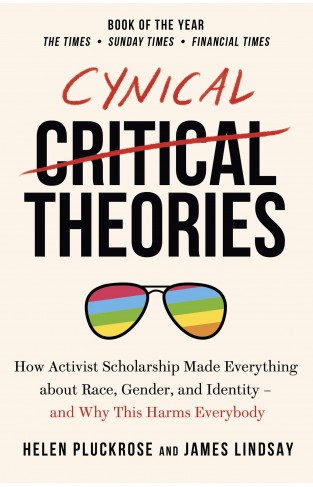
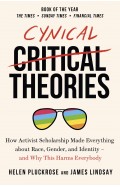
-120x187.jpg?q6)





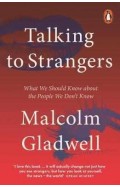

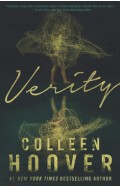
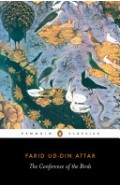
-120x187.jpg?q6)
